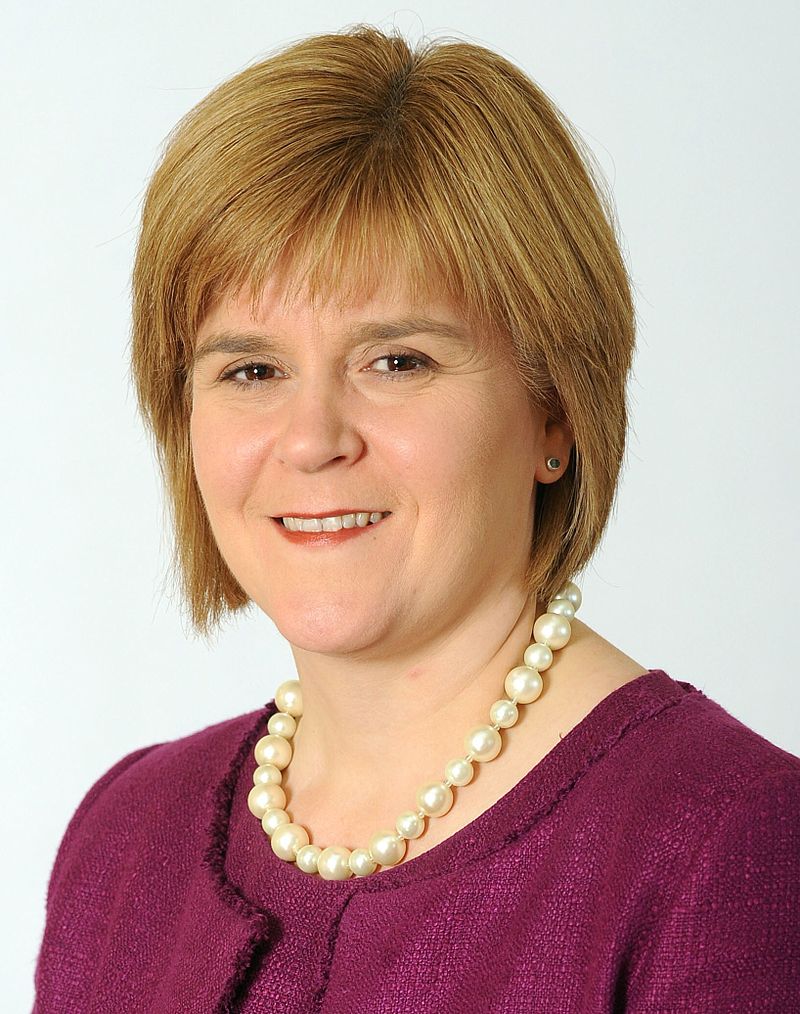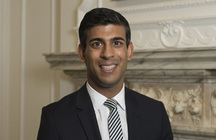Roger Moate – 1978 Speech on Swale Hospital
Below is the text of the speech made by Roger Moate, the then Conservative MP for Faversham, in the House of Commons on 15 March 1978.
My object in seeking this Adjournment debate is specifically to draw attention to the need for a new general hospital in the Swale area. I emphasise that this is the ultimate target. If we could gain acceptance for that, by implication there would be acceptance for all the other elements in the long-term capital programme for hospital development needed in the Medway health district. That district includes much of the Swale area.
Essentially, what I am trying to do is to see whether we can get a commitment to a sustained programme of major capital investment in the Medway health district to cover the next 15 to 20 years. I understand that such a commitment has not been unusual elsewhere nationally, and particularly in the case of teaching hospital development programmes. Just such a programme has been set out in the district plan of the Medway health district, published in September 1977. I understand that this plan has been endorsed by the Kent health authority, and I hope that it will be approved by the region and the Government.
The background to the plan is one of serious deprivation in terms of hospital facilities in the Medway district. I do not think that there is any dispute about the facts. The case has been put strongly in Adjournment debates raised by the hon. Member for Rochester and Chatham (Mr. Bean) and more recently by the hon. Member for Gravesend (Mr. Oven-den). The case has been pressed frequently and tirelessly by my hon. Friend the Member for Gillingham (Mr. Burden), who is hoping to catch your eye later, Mr. Deputy Speaker. This emphasises very much the fact that this is in no way a party political matter. Its history spans many previous Governments, and I suspect that before it is solved many future Governments will be involved.
The debates we have had recently have concentrated largely on the serious shortage of revenue available to Medway health district for the maintenance of our existing services. On 3rd March the Minister of State acknowledged that this year only £78 is being spent per person in Kent compared with £108 in Greenwich and Bexley and £122 in Lambeth, Southwark and Lewisham. Incidentally, the Minister of State said that he intends to visit the district later this year. May I say how welcome he will be? I hope that he will find time to visit us in the Swale part of the district and see how inadequate are our hospital facilities.
There is no doubt that Kent as a whole is relatively under-funded. It is acknowledged that, within Kent, Medway is one of the most deprived districts. It is worth emphasising that, compared with the target allocations under the formula of the Resource Allocation Working Party, Medway is under-funded by £4 million, Maidstone by £5 million and Canterbury and Thanet—which includes part of the Swale district—by £6 million, which Kent as a whole is under-funded by £22·2 million.
Comparatively, the teaching area of Lambeth and Lewisham is, in theory at least, over-funded by £23 million. I say “in theory” because in practice I am beginning to think that the RAWP formula is in many respects unworkable and should be reviewed. It might work well in a period of increasing resources, but I question whether it really can work in a period of restriction. Can it really work when poorer districts can be helped only by the closure of hospitals in other districts? I regret to say that in the short term we seem to have very little hope of any substantial improvement in the revenue situation.
The extent of our deficiency in hospital services is quite dramatic. According to Government standards, we should have over 1,900 hospital beds. We have about 1,000. That is a shortage of 900 beds. Looking at the figures for the average daily bed provision per thousand population, we find that Medway is right at the dismal bottom of the league table, both for Kent and the South-East Region, and we are way behind the Department’s own recommended guidelines. This means longer waiting lists and that many patients have to travel longer distances for treatment. It means that in our area we face acute shortages in geriatric and maternity services and in acute surgery and psychiatric services.
Looking at the provision of capital funds, we see that the region comes out badly. Apart from massive investment such as £45 million for St. Thomas’s Hospital and Guy’s Hospital alone, the region has regularly had the lowest share of capital per head of population of all the regions in the country. This year the figure is £3·3 per head, compared with £9·2 per head in the best region. No new hospital has been completed in the South-East Thames Region since the start of the National Health Service in 1948, with the exception of Greenwich Hospital.
How is this great gap in the Medway area to be filled, and what assurances can the Government give to the people of Medway that in future adequate hospitals will be available? A programme has been drawn up for Medway and for Swale. This programme includes a number of major hospital developments. It includes the long overdue expansion of the Medway Hospital to provide, among other services, for extra geriatric, psychiatric and acute surgical services. It includes the improvement of All Saints’ Hospital, with a first priority for the new special care baby unit. It includes the phased provision of a second major hospital, ultimately to have 500 beds, in the Swale area. As the plan puts it, the site acquisition for this “should be pursued immediately”.
I emphasise that the intention to develop Medway Hospital to its full potential as an 800-bed district general hospital was agreed by the regional board in the 1960s. My hon. Friend the Member for Gillingham knows all about this, because he has been involved in it for so long.
Today we only have phase one, with 213 beds, and it is likely to be the mid-1980s before we see phase two completed, if we are lucky. Also, the idea of providing a second major hospital within the health district is not new. It was recognised and agreed by the former regional hospital board. The only change is that it is now the view that this second hospital should not be built on a site which would have been fairly close to the Medway Hospital but should be situated within the Swale area, to meet the needs of that expanding population. There is a strong case for this.
The population of Medway itself has increased by 30 per cent in each of the last two decades, and the population of Swale has also expanded substantially. It is significant that there is an exceptionally high proportion of young people and that this is expected to increase the demand for hospital facilities certainly into the 1990s. Therefore, it makes sense to have a new hospital in Swale. We accept that this is something for the longer term, but there will be no hope of achieving it even for the next generation, let alone the present one, unless we earmark a site now for the hospital and take steps to secure it now.
It is very difficult for the health authorities to make such a commitment when they are so desperately concerned to find enough revenue to maintain existing services, but it is our job to look ahead. This is where the Government can give the necessary backing to the region and to the district by supporting this capital programme.
I think that the case for the Swale hospital has been made very effectively in the Medway plan for which we are seeking Government support. A plan has been agreed for the provision of a new 28-bed geriatric unit at the Keycol Hospital. There is a desperate shortage of in-patient geriatric services, and this unit is needed. There is no conflict there with the long-term idea of a proposed Swale hospital development. I do not know whether there is yet an indication that the money for the Keycol project will be made available, but I hope that it will be soon.
Although we are talking about new hospital facilities, there is no fundamental belief that the answer to health care is simply to build bigger, better and more hospitals. That point has been made clearly and emphatically in the health district report, and the health care planning team emphasises that it sees the provision of in-patient services as being combined with the equally important aim of reducing the need for hospital care and treatment by developing community and primary care. But our case is that the existing provision of hospital facilities falls far below the minimum needed to provide adequate and decent hospital services for the people of the Medway and Swale area.
Before allowing my hon. Friend the Member for Gillingham to make his contribution, I ought to say that, in emphasising the need for a new hospital and in making a plea for it by drawing attention to the inadequacy of our present services, I do not wish it to be thought that I am denigrating the staff in our present hospitals, who do a splendid job of work, and the many voluntary organisations which give so much of their time and effort to supporting the existing hospitals. Even if we get a new Swale hospital, when we get the expansion and improvement of the hospitals about which we are talking there will still probably be some sort of role in the National Health Service for many of those hospitals.
Although the Minister may not be able to promise us the money, I hope that he will at least be able to promise a sympathetic look at the need in the Swale area for a new district general hospital.


